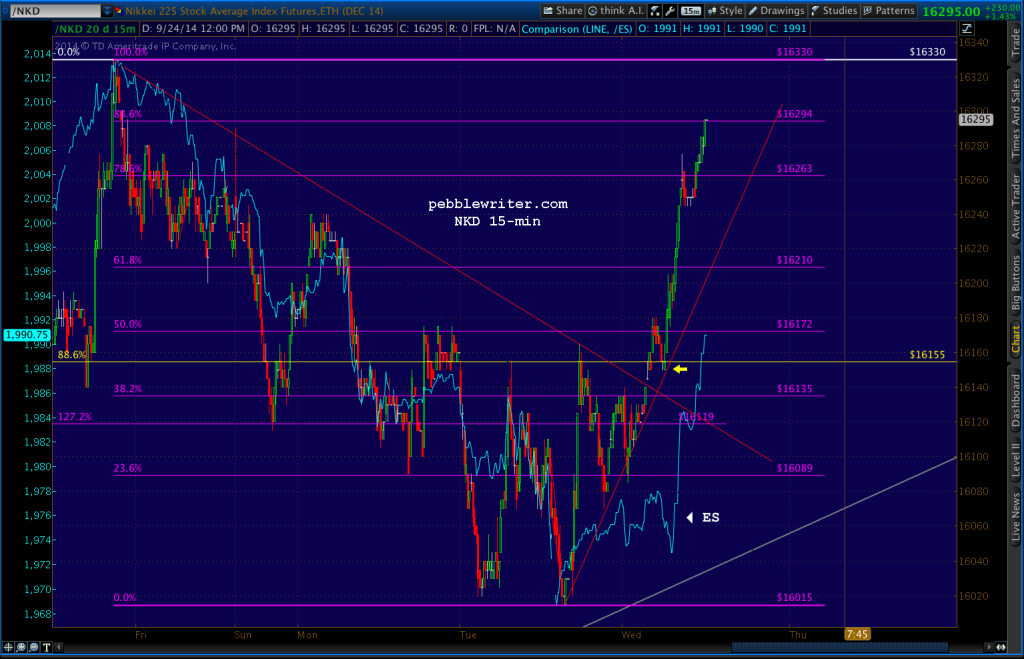Don’t have much to add to this, other than the farce has now gone full tilt.
From Nikkei Asian Review:
TOKYO — The Bank of Japan is growing into its role as a key source of support for the country’s stock market, as it has stepped up purchases of exchange-traded funds to bring its equities portfolio to an estimated 7 trillion yen ($63.6 billion) or so.
The central bank bought 123.6 billion yen worth of ETFs in August, the largest monthly tally so far this year. At one point, it snapped up ETFs in six straight sessions amid weak stock prices.
The BOJ tends to make 10 billion yen to 20 billion yen worth of purchases when stock prices fall in the morning. The bank has not made any purchases so far in September because the market has been rallying.
According to BOJ data, the market value of individual stocks and ETFs that it held as of March 31 came to 6.15 trillion yen. Given its purchases since then and the market rally, the value is estimated to have increased to a whopping 7 trillion yen or so by now.
That figure accounts for 1.5% of the entire market value of all Japanese shares, or roughly 480 trillion yen. It also means the BOJ may surpass Nippon Life Insurance, the largest private-sector stock holder with some 7 trillion yen in holdings, as early as this year and emerge as the second-biggest shareholder behind the Government Pension Investment Fund — the national pension fund with 21 trillion yen.
The BOJ started outright purchases of shareholdings from banks back in 2002 with the aim of stabilizing the country’s financial system. To prevent stocks from tumbling steeply, it also began buying ETFs in 2010. The bank does not buy individual shares now, but it doubled its annual ETF purchases to 1 trillion yen when it introduced unprecedented levels of monetary easing in April 2013.
It is unusual for a central bank to buy stocks and ETFs, given that their sharp price swings pose the risk of undermining the health of the bank’s assets. High levels of purchases by the BOJ affect stock prices and may hurt asset allocation and development of the financial markets.
The timing and technique of selling the BOJ’s shareholdings are also a tricky question. A freeze has been put on sales of individual shares until March 2016, and there is no selling schedule for ETFs. But given that the bank’s holdings are equal to roughly half the 15 trillion yen in net buying by foreigners last year, large-scale selling would be certain to shake the market.
For anyone who hadn’t noticed, there was a direct and immediate impact on US stocks courtesy of the yen carry trade. The latest example occurred this morning, when the Nikkei was plunging, along with SPX. While the new home sales news was widely regarded as giving the “market” a boost, it was actually USDJPY and NKD — with a healthy dose of VIX smashing courtesy of the Chicago branch of the FOMC (aka Citadel.)
No rational buyer would step in and catch this falling knife. Fortunately for the “markets,” the BOJ has no problem with irrational actions. That’s what teetering on the brink will do for you. At least they have the decency to admit their actions, unlike the FOMC — which resorts to indirect manipulation.
Look for the big reset after US markets close. USDJPY and NKD will drop like rocks, while TPTB should have no trouble propping up futures in the low-volume after-hours (if that’s what the script calls for.)

